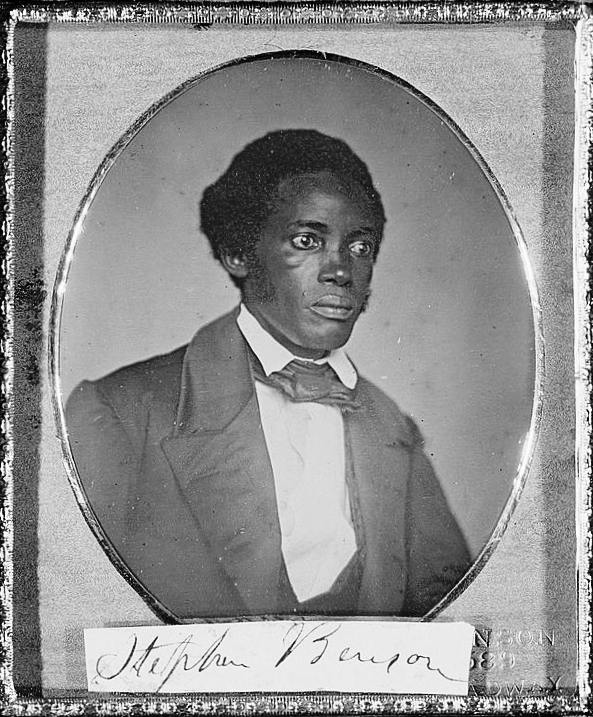The Republic of Liberia is a country on the west coast of Africa, bordered by Sierra Leone, Guinea, and Côte d'Ivoire. It has recently been afflicted by two civil wars, the Liberian Civil War (1989–1996), and the Second Liberian Civil War (1999–2003), that have displaced hundreds of thousands of its citizens and destroyed the Liberian economy.
Settlers from America
The history of Liberia as a political entity begins with the arrival of the black American settlers — the Americo-Liberians, as they came to be known — who established a colony of “free men of color” on its shore in 1822 under the auspices of the American Colonization Society. The historical roots from which a majority of present-day Liberians derive their identity, however, are found in the varied traditions of the several ethnicities of indigenous Africans whom the settlers confronted in their struggle to gain a foothold in Africa and, later, extend their control into the interior.
On July 26, 1847, the American settlers declared the independence of the Republic of Liberia. The settlers regarded the continent from which their forefathers had been taken as slaves as a "Promised Land", but they did not become reintegrated into an African society. Once in Africa, they referred to themselves as "Americans" and were recognized as such by local Africans and by British colonial authorities in neighboring Sierra Leone. The symbols of their state — its flag, motto, and seal — and the form of government that they chose reflected their American background and diaspora experience.

The religious practices, social customs and cultural standards of the Americo-Liberians had their roots in the antebellum American South. These ideals strongly coloured the attitudes of the settlers toward the indigenous African people. The new nation, as they perceived it, was coextensive with the settler community and with those Africans who were assimilated into it. Because of mutual mistrust and hostility between the "Americans" along the coast and the "Natives" of the interior, a recurrent theme in the country's subsequent history, therefore, was the usually successful attempt of the Americo-Liberian minority to dominate people whom they considered uncivilized and inferior. They named the land "Liberia," which in European languages, and in Latin in particular, means "Land of the Free".
The founding of Liberia was privately sponsored by American religious and philanthropic groups, but the colony enjoyed the support and unofficial cooperation of the United States government. Liberia’s government, modeled after that of the United States, was democratic in structure, if not always in substance. After 1877 the True Whig Party monopolized political power in the country, and competition for office was usually contained within the party, whose nomination virtually ensured election. Two problems confronting successive administrations were pressure from neighboring colonial powers, Britain and France, and the threat of financial insolvency, both of which challenged the country’s sovereignty. Liberia retained its independence during the Scramble for Africa, but lost its claim to extensive territories that were annexed by Britain and France. Economic development was retarded by the decline of markets for Liberian goods in the late nineteenth century and by indebtedness on a series of loans, payments on which drained the economy.

Significant mid-20th-century events
Two events were of particular importance in releasing Liberia from its self-imposed isolation. The first was the grant in 1926 of a large concession to the American-owned Firestone Plantation Company; that move became a first step in the modernization of the Liberian economy. The second occurred during World War II, when the United States began providing technical and economic assistance that enabled Liberia to make economic progress and introduce social change.
1980 coup under Doe
On 12 April 1980, a successful military coup was staged by a group of noncommissioned officers of tribal origins led by Master Sergeant Samuel Kanyon Doe, and they executed the President of nine years William R. Tolbert, Jr. in his mansion. Constituting themselves the People’s Redemption Council, Doe and his associates seized control of the government and brought an end to Liberia’s "first republic".

Doe made strong ties with the United States in the early 1980s, receiving more than $500 million for pushing out the Soviet Union from the country, and allowing exclusive rights for the US to use Liberia's ports and land (including allowing the CIA to use Liberian territory to spy on Libya).
Doe continued his authoritarian policies, banning newspapers, outlawing opposition parties and holding staged elections.
1989 and 1999 civil wars
In late 1989, a civil war began, and in September 1990 Doe was ousted and killed by the forces of faction leader Yormie Johnson and members of the Gio tribe. As a condition for the end of the conflict, interim president Amos Sawyer resigned in 1994, handing power to the Council of State. Prominent warlord Charles Taylor was elected as President in 1997. Taylor's brutal regime targeted several leading opposition and political activists. In 1998, the government sought to assassinate child rights activist Kimmie Weeks for a report he had published on its involvement in the training of child soldiers, which forced him into exile. Taylor's autocratic and dysfunctional government led to a new rebellion in 1999. More than 200,000 people are estimated to have been killed in the civil wars. The conflict intensified in mid-2003, when the fighting moved closer to Monrovia. As the power of the government shrank and with increasing international and American pressure for him to resign, President Charles Taylor accepted an asylum offer by Nigeria, but vowed: "God willing, I will be back."


1 comment:
hey!!
its been a while since i've been here. Hope everything's been really great!
cheers
Siti
Post a Comment